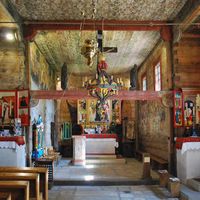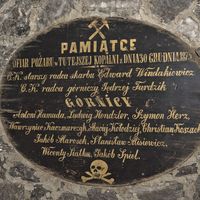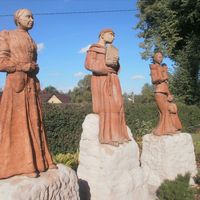Bochnia County
6.85

Overview
Bochnia County, established in 1999 as part of the administrative reform, is located in the Lesser Poland Voivodeship, with its seat in the town of Bochnia. The county includes urban, urban-rural, and rural municipalities. It is home to over 107,000 people (2020 data). Historically, Bochnia is known for salt mining, which contributed to its economic and cultural development. The county's architectural heritage includes numerous churches, many of which are Roman Catholic parishes, reflecting the dominant religious character of the region. The cultural life of the county is enriched by the activities of Protestant communities and Jehovah's Witnesses, who also have congregations in Bochnia. Bochnia County borders other counties of Lesser Poland, fostering cultural exchange. An interesting fact is its cooperation with the German district of Saarlouis, which demonstrates international relations and the pursuit of regional development. It is also worth noting the demographic diversity, which influences the social and cultural life of the county.
Location
You can also find here:

Bochnia
8.22
Bochnia East Deanery

Bochnia
7.95
Bochnia East Deanery

Wiśnicko-Lipnicki Landscape Park
7.29
Bochnia East Deanery

Żegocina
7.18

St. Leonard's Church in Lipnica Murowana
7.11

Niepolomice Forest
7.05
Niepołomice Deanery

Łapanów
6.89
Bochnia West Deanery

Bochnia Salt Mine
6.89
Bochnia East Deanery

Lipnica Murowana
6.81

Krzczonów
6.81
Bochnia East Deanery
2026 Wizytor | All Rights Reserved